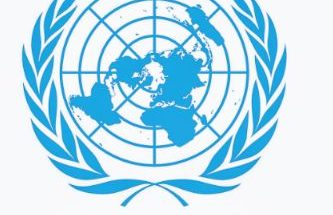The ruling, however, stopped short of ordering a ceasefire. The Court also ordered Hamas to release all the hostages.
By Israel Okah
The International Court of Justice, ICJ, at the Hague, today delivered a classic judgement of no Victor no vanquished in the alleged “genocide” case against Gaza brought against Israel by South Africa.
None of the three parties in the case – Israel, South Africa and Palestinians – got exactly what they wanted.

It rejected Israel’s request for the case to be thrown out, but it also stopped short of ordering Israel to halt the war as South Africa hapd asked.
In the court’s preliminary ruling: the 17-judge panel issued six emergency measures ordering Israel to “take all measures within its power” to prevent acts which could fall foul of the Genocide Convention.

The measures are as follows:
• Prevent commission of acts that kill or cause serious bodily or mental harm to Palestinians. The acts are specified within Article Two of the genocide convention.
• Ensure that its military does not commit any of the aforementioned acts.
• Prevent and punish any direct and public incitement to commit genocide.
• Enable provision of urgently needed basic services and humanitarian assistance for Palestinians in Gaza
• Prevent destruction of any evidence related to allegations of acts of genocide
• Submit a report to the court on all measures taken to adhere to these orders
The ruling, however, stopped short of ordering a ceasefire. The Court also ordered Hamas to release all the hostages.

In his reaction, Israeli Prime Minister Benjamin Netanyahu hailed the preliminary ruling on South Africa’s accusation of genocide as a rejection of discrimination against Israel.
“Like every country, Israel has an inherent right to defend itself,” he said in a short video message.
“The vile attempt to deny Israel this fundamental right is blatant discrimination against the Jewish state, and it was justly rejected.”
Ruled Judge Joan Donoghue from United States, “Israel must in accordance with its obligations under the Genocide Convention, in relation to Palestinians in Gaza take all measures within its power to prevent the commission of all acts within the scope of Article Two of the convention in particular, killing groups of members of the group, be causing serious bodily or mental harm to members of the group,” Judge Joan Donoghue said as she delivered the court’s decision.
“The court considers that the catastrophic humanitarian situation in the Gaza Strip is at serious risk of deteriorating further before the court renders its final judgement,
“The court considers that there is urgency in the sense that there is a real and imminent risk at irreparable prejudice will be caused to the rights found by the court to be plausible before it gives its final decision.”

The ICJ’s decisions are binding and cannot be appealed, but it cannot be enforced.
South Africa had asked the court to issue “provisional measures” ordering Israel to stop its war, which it said was “necessary in this case to protect against further, severe and irreparable harm to the rights of the Palestinian people.”
A provisional measure is a temporary order to halt actions, or an injunction, pending a final ruling.
The International Court of Justice (ICJ) is comprised of 15 judges, each of whom serves nine-year terms.
The current judges are from the United States, Russia, China, Slovakia, Morocco, Lebanon, India, France, Somalia, Jamaica, Japan, Germany, Australia, Uganda and Brazil. Five seats come up for election every three years, with no consecutive term limit.
In addition to the 15 permanent judges, ad-hoc judges can be appointed by parties in contentious cases between two states – in this instance, Israel and South Africa – bringing the number of judges in the case to 17.
South Africa appointed Dikgang Moseneke, the country’s former deputy chief justice, and Israel named Aharon Barak, ex-president of the country’s Supreme Court.




